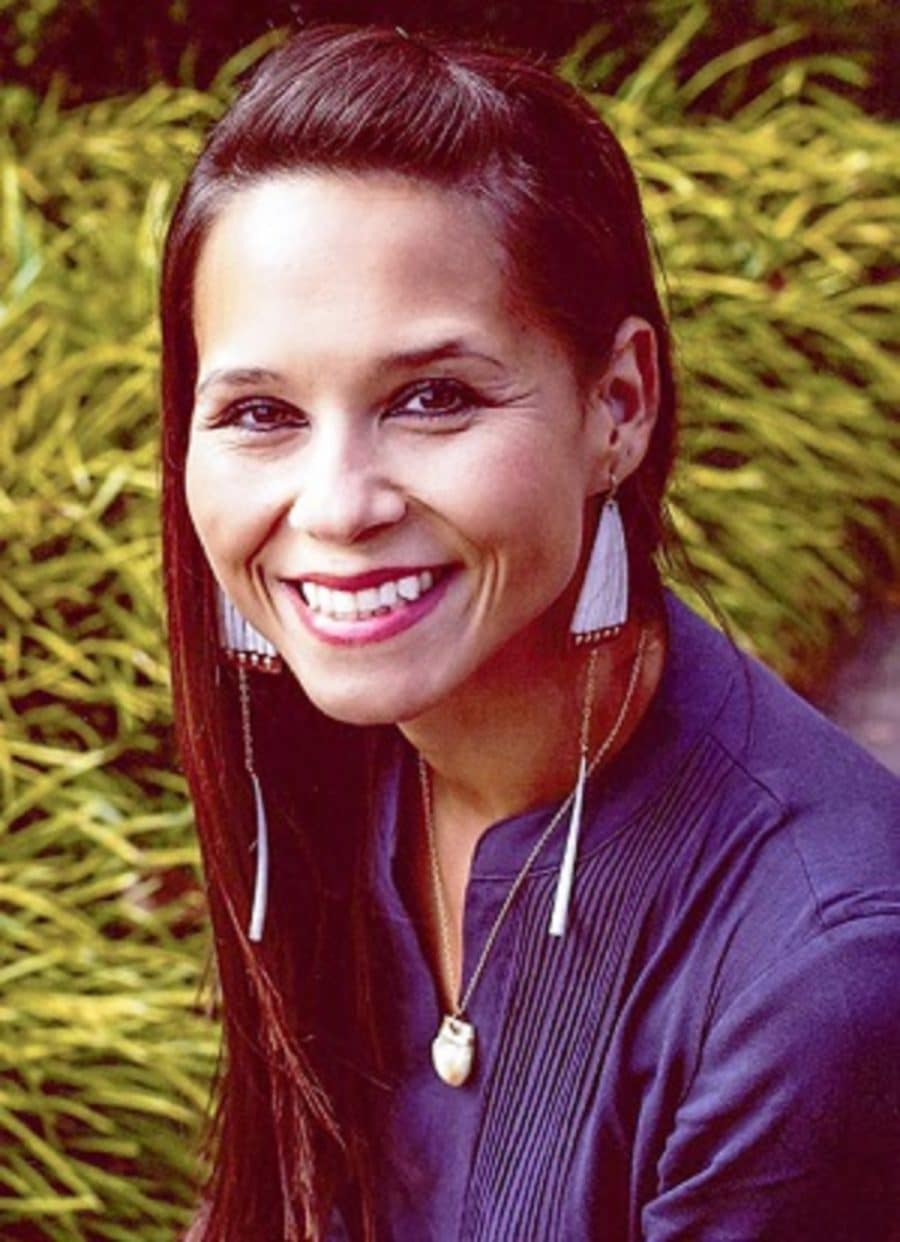
Editor’s note: September is National Suicide Prevention Month. Hownikan spoke with Dr. Glenna Stumblingbear-Riddle about suicide, how it impacts our community, warning signs, prevention and how and where to find help. 
What do you do with Citizen Potawatomi Nation? What inspired you to become involved?
“I am the director of behavioral health and outreach program coordinator for CPN’s Behavioral Health program. I also serve as clinical director for the Native Connections grant.
“I’m a member of the Kiowa tribe and a licensed health service psychologist. I grew up in a small, predominantly American Indian town in Oklahoma (and) I experienced first-hand the health disparities that exist in our communities. I have been driven to do my part to help reduce health and behavioral health disparities in Indian Country as long as I can remember.
“I have dedicated my life to bring about positive change and to help our communities remember how resilient they are and to empower them to pursue their dreams.
“Early on in my career, I became increasingly aware of the devastating impact of suicide. I have been impacted personally and felt strongly about implementing programs specifically geared toward suicide prevention. However, prevention is hard to fund. Fortunately, after CPN was awarded the Substance Abuse and Mental Health Services Administration Native Connections grant and the Methamphetamine and Suicide Prevention Initiative grant, we are able to take the much-needed steps toward understanding in an in-depth way the needs of our community, focusing on youth and young adults, and implementing specific, culturally appropriate and trauma-informed suicide prevention along with substance abuse prevention.”
What data is available regarding Shawnee, Oklahoma, or Native Americans?
“It is important to note that there are varying levels of suicide rates in each community, county and state. Additionally, suicide looks different among different racial and ethnic groups and varies by gender and age.
“Nationally, we know that American Indian and Alaska Native youth and among veterans and active service members suicide rates are at crisis levels. For example, according to the Centers for Disease Control and Prevention, from 2012-2013, American Indians and Alaskans ages 18-24 had the highest suicide rate at 22.5 percent. We also know that nationally, suicide is the second-leading cause of death for American Indian and Alaskan youth ages 15-24. In contrast, suicide rates are highest for middle-aged caucasian men when you examine that population, according to the CDC.
“In Oklahoma, according to the most recent data, we rank 13th-highest in the nation for suicide rates. More specific to Shawnee, the Oklahoma Statistics on Health shows that from 2011-2015 there were 71 completed suicides in Pottawatomie County. One completed suicide is one too many. It is critical to understand that suicide is a major public health issue that impacts everyone — people of all ages, races, ethnicities and socioeconomic statuses. In 2014, suicide was the 10th-leading cause of death in the United States. Suicide not only impacts the individual, but the family and community. It is also a preventable death and everyone has a role to play in preventing suicide. Educate yourself about the warning signs and learn how to help a family member, friend or coworker.
“If a person is threatening to hurt or kill him/herself, you always take it seriously and try to get them help.
“If a tribal member is struggling with suicidal thoughts or any behavioral health issue, help is available. A person can self-refer or be referred by their primary care provider. A tribal member can call us at 405-214-5101 or stop by 26 Father Joe Murphy Drive, Shawnee, OK 74801. We provide crisis intervention and individual, couples, and family therapy and psychiatry. We also offer groups to help reduce substance use and have a smoking cessation class.”
“Although help is available, stigma remains a big barrier that prevents people from getting the help they need. We also all have a part to play in working together to reduce stigma surrounding suicide and behavioral health.
“We can be encouragers and help one another locate resources and learn that it is okay to talk about these issues. Mental health and substance use issues are so common that most of us are either directly or indirectly impacted by them. Prevention works and recovery is possible! It is not a sign a weakness to go seek professional help. Bay p’ay tday, bay p’ay tday, translated from Kiowa, ‘Don’t give up, keep trying.’”
How is CPN bringing awareness to this issue?
“CPN is very supportive of our behavioral health program, including new grant programs specifically targeted to implement suicide prevention. We are working together to bring about more awareness of suicide and also develop evidence-based programs to help reduce suicide in our community. CPN clinics administer depression screening that ask if the person is having thoughts about killing themselves. This is an effective tool, as we know that many individuals who complete suicide have had a visit with their primary care provider in the last 30 days. This screening tool aids in saving lives and helps identify persons in need of help and we work to get them the help they need.
“Recently, with the assistance of the Kickapoo Behavioral Health Services team, we had mental health first-aid training at the Cultural Heritage Center, where around 20 CPN employees were able to learn mental health first aid and other CPN employees have also attended mental health first-aid training in Oklahoma City. Mental Health First Aid is a public education program that helps individuals learn how to manage crisis situations. Specifically, it helps individuals learn risk factors and warning signs to best respond to behavioral health problems that they may encounter at work or at home. You can contact the Oklahoma Department of Mental Health and Substance Abuse Services (ok.gov/odmhsas) to learn more about available courses.
For more information about the grant programs please contact Michael Haskins at 405-214-5101.
